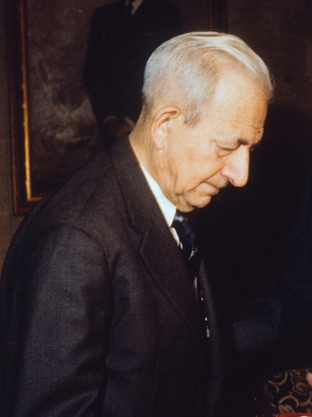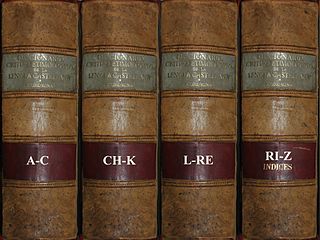Related Research Articles

Joan Coromines i Vigneaux was a linguist who made important contributions to the study of Catalan, Spanish, and other Romance languages.

Anna Simó i Castelló is a Spanish Catalan politician. A member of the Republican Left of Catalonia (ERC), she became the Minister of Social Welfare and Family Affairs of the Generalitat de Catalunya in 2003 as part of the first "Tripartite" coalition government formed by the Socialists' Party of Catalonia, ERC and Initiative for Catalonia Greens, a position she held until ERC's ministers were removed from the government in May 2006.

Maria Rosa Marco Poquet, better known by her stage name Salomé, is a Spanish singer.

Lluís Companys Olympic Stadium formerly known as the Estadi de Montjuïc and Estadi Olímpic de Montjuïc and also known in English as the Barcelona Olympic Stadium, is a stadium in Barcelona, Catalonia, Spain. Originally built in 1927 for the 1929 International Exposition in the city, it was renovated in 1989 to be the main stadium for the 1992 Summer Olympics and 1992 Summer Paralympics. It is used mostly for football matches and is the home stadium of FC Barcelona since the 2023–24 season, due to the renovation of their regular ground, the Camp Nou. The stadium is named after Lluís Companys, the president of Catalonia during the Spanish Civil War.

Liga Asobal is the premier professional handball league in Spain. It was founded in 1958 with the name of División de Honor, changing its name to the current name in 1990. The Liga ASOBAL, which is played under EHF rules, currently consists of 16 teams, including famous ones like FC Barcelona, Ademar León, Bidasoa and Granollers.

Josep Samitier Vilalta, also known as José Samitier, was a Spanish football player, manager and scout who played as a midfielder for FC Barcelona, Real Madrid, OGC Nice, the Catalan XI, and Spain. He later coached Atlético Madrid, Nice and Barcelona and worked as a scout for both Barcelona and Real Madrid.

Arenas Club de Getxo is a Spanish football club based in the town of Getxo, near Bilbao, in the autonomous community of Basque Country. Founded in 1909, it currently plays in Segunda Federación – Group 2, holding home games at Campo Municipal de Gobela, with a 2,000-seat capacity. They were winners of the 1919 Copa del Rey, beating FC Barcelona 5–2.

Núria Espert Romero is a Spanish theatre and television actor, and theatre and opera director.

Trasmoz is a village in the province of Zaragoza, Aragon, Spain, with an estimated population of 96.
Spain was represented at the Eurovision Song Contest 1961 with the song "Estando contigo", composed by Augusto Algueró, with lyrics by Antonio Guijarro, and performed by Conchita Bautista. The Spanish participating broadcaster, Televisión Española (TVE), selected its entry through a national final. This was the first ever Spanish entry in the Eurovision Song Contest.

Ramon Torralba Larraz is a famous figure in the history of FC Barcelona. He was popularly known as la Vella because of his long career with Barça.

The Diccionario crítico etimológico castellano e hispánico is a discursive etymological dictionary of Spanish compiled by Joan Coromines in collaboration with José Antonio Pascual. It was completed in the late 1970s and published in five volumes in the early 1980s. The entries Y and Z plus an index of the five volumes was published as a sixth volume in 1991. The dictionary is an expansion and consolidation of earlier etymological publications by Corominas, particularly the mid-1950s Diccionario crítico etimológico de la lengua castellana.

The 1919 Copa del Rey final was an association football match between Arenas Club de Getxo and FC Barcelona on 18 May 1919 at the Martínez Campos stadium in Madrid. It was the deciding match of the Spanish cup competition, the Copa del Rey. Both teams progressed through a quarterfinal and a semifinal round to reach the final, with Barcelona going undefeated throughout the tournament. The final was attended by a crowd of 8,000 spectators with all tickets having been sold out. With the match tied 2–2 at the end of regular time, Arenas were able to use their superior endurance to win 5–2 in extra time thanks to goals by Florencio Peña and Juan Ibaibarriaga as well as a hat-trick from Félix Sesúmaga. This victory gave Arenas their first and only national cup title.

The Diccionario crítico etimológico de la lengua castellana is a four-volume etymological dictionary of Spanish compiled by the Catalan philologist Joan Corominas (1905-1997), and first published by Francke Verlag in Bern, Switzerland, in 1954.
The 1939–40 season was the 41st season for FC Barcelona.

Lluís Maria Corominas i Díaz is a Catalan lawyer, politician and a former member of the Parliament of Catalonia. He is currently awaiting trial on charges of disobedience for his role in the Catalan declaration of independence.

Vicente Martínez Duart was a Spanish footballer who played as a forward. He was one of the great forwards of Barcelona's early history, netting 203 goals in 285 games between 1915 and 1923, although this tally includes goals scored in friendlies and unofficial games.

John Parsons Alexander, was an Anglo-Spanish footballer who played as a forward for FC Barcelona. His younger brother, William, followed him every step through.
Arsenio Comamala López-Del Pan was a Spanish footballer who played as a midfielder for FC Barcelona and Madrid FC. He is best known for being one of the first players to have featured for both FC Barcelona to Madrid FC.

The Velódromo de la Bonanova was a sports venue in the city of Barcelona, Spain. It was the first velodrome in the city, although it was located in the neighboring municipality of San Gervasio, which in 1897 was annexed to the Catalan capital. Later it hosted other sports competitions, especially football, being the very first playing field of FC Barcelona.
References
- ↑ "Edición del Monday 13 April 1998, Página 30 - Hemeroteca - MundoDeportivo.com". hemeroteca.mundodeportivo.com.
- ↑ "¡Cómo hemos cambiado! 25 años de la gesta de La Roja". AS.com. 8 July 2022.
